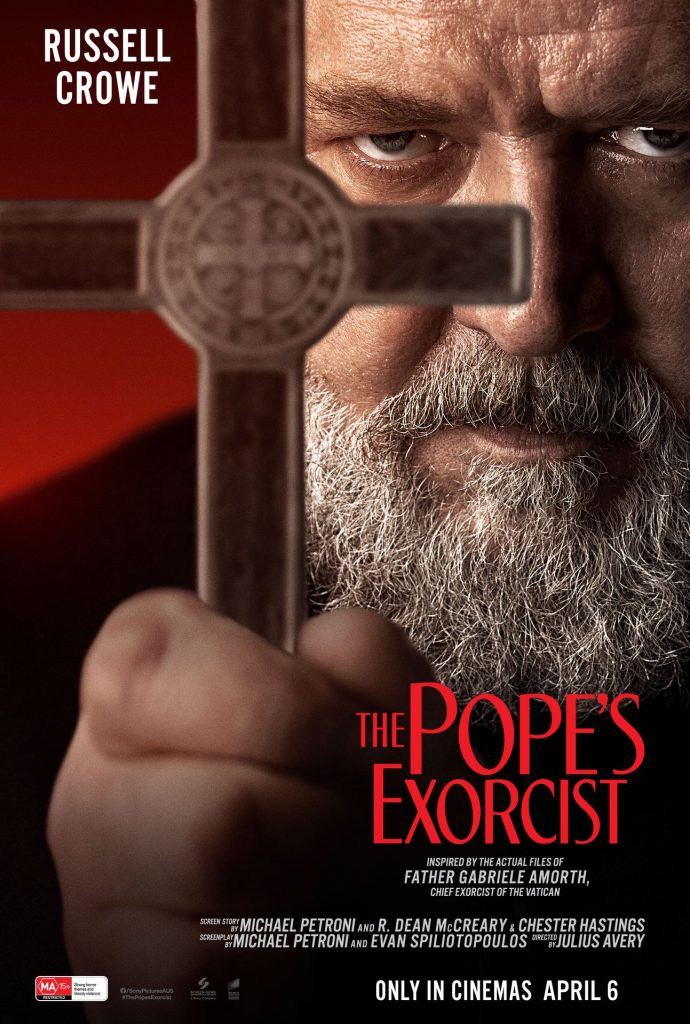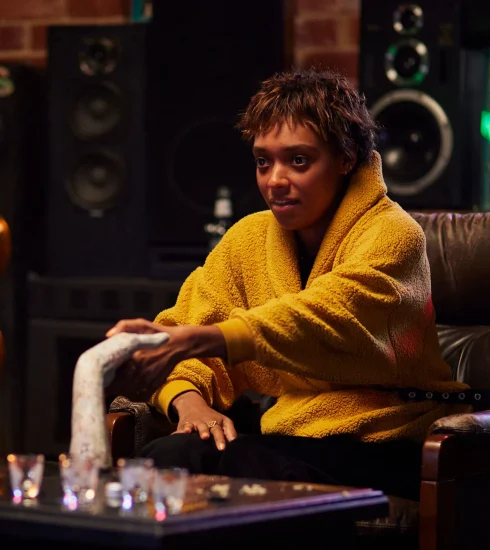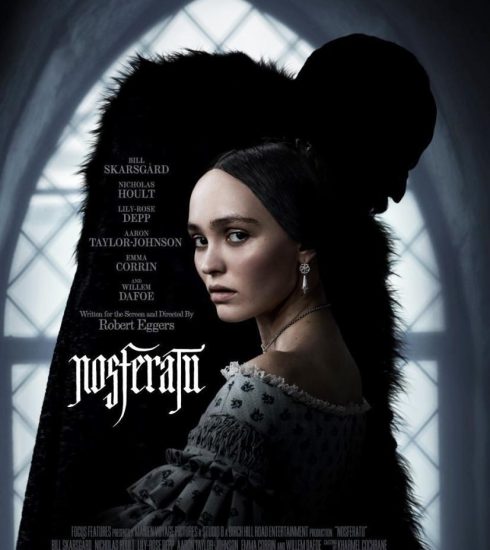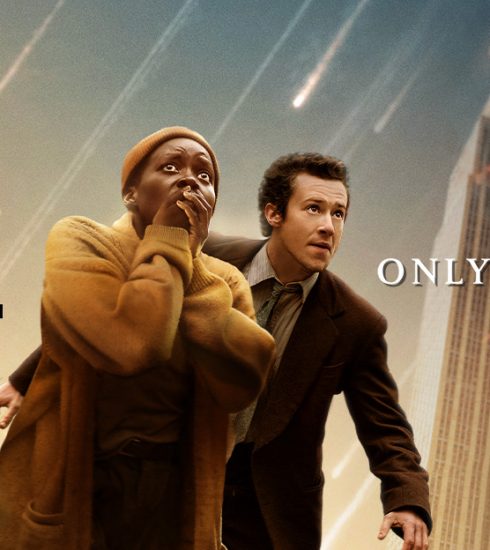Movie Review: The Pope’s Exorcist
Spinning heads, seared flesh, holy incantations in Latin: could it be… Satan? This year marks the 50th anniversary of The Exorcist, William Friedkin’s blockbusting, genre transforming horror landmark that has been parodied, sequelized (on multiple occasions), and firmly embedded in the collective cultural consciousness. And now along comes The Pope’s Exorcist, a passable little supernatural horror spectacle starring a big, bearded Russell Crowe trying on an Italian accent as Father Gabriele Amorth, apparently a real-life exorcist of some renown.
Yes, there are real-life exorcists, and this was actually key to the impact of Friedkin’s film. He treated the gruesomeness with documentary like veracity, creating the illusion that what you were seeing (or shielding your eyes from) was really happening. The Pope’s Exorcist tries to follow in these footsteps and occasionally even succeeds, playing with ideas of faith and doubt and belief, parsing the differences between mere psychological disturbance and, you know, possession. In the process, it also gets a little silly.
Many, many satanic-possession movies have been made in those intervening 50 years, and they’ve supplied a lifetime of tropes and genre expectations. This movie uses a whole bunch of them, from the deep, gravelly voice of Satan to the telekinetic tossing of bodies around a room. Which doesn’t mean they can’t keep trying. It’s 1987, and this time the dark lord’s victims are an American mom (Alex Essoe) and her two kids (Peter Desouza Feighoney and Laurel Marsden), newly arrived in Castille, Spain, to fix up and flip an old abbey that belonged to the family of her late husband.
They carry baggage — husband/dad died in a grisly car accident a year ago, and the son, Henry, hasn’t spoken since. He is weighed down byor, rather, sin, is what the devil feeds on. Enter Father Amorth, tootling around Europe on a motor scooter, guzzling whiskey from a flask, and perhaps having more fun than an exorcist should be allowed. Before getting down to business in Spain, Amorth is dressed down by a snivelling young Cardinal (Ryan O’Grady) who places little stock in supernatural mumbo jumbo. But Amorth knows better.

Enlisting the help of a young Spanish priest, Father Esquibel (Daniel Zovatto), the pope’s exorcist knows immediately that he’s up against a worthy Adversary. The Pope’s Exorcist can feel chintzy and derivative, its lack of budget evident in its threadbare special effects. But it has a few things going for it. Director Julius Avery knows his way around the visual grammar of horror, the shocks and cuts and the camera work that add up to fear.
Crowe brings an imposing physicality and winking charm to go with Amorth’s gravity, although it’s still hard to fathom how an actor who won one Oscar (for Gladiator) and could have easily won two more ended up here. Perhaps most surprising: The Pope’s Exorcist has some actual ideas in its head. Both priests have regrets and skeletons in their closets, sizable burdens of which the demon is well aware. So does the Catholic Church. We’re not talking sexual abuse; the movie gets into the sins of the Spanish Inquisition, a seismic, centuries-long wrong.
The conspiracy at the heart of The Pope’s Exorcist is a bit amorphous, a little too illuminati, but it manages to connect just well enough with the horrors at hand. The International Association of Exorcists has slammed the movie as “unreliable,” and the coolest thing about this is that there exists an International Association of Exorcists. This fact gets back to that frisson that drove the original Exorcist, and, to a much lesser extent, The Pope’s Exorcist. This, the movies try to suggest, could happen to you. And the realer something feels, the scarier it can get. The Pope’s Exorcist will certainly never go down as a classic of the genre, but it’s better than it has any reason to be. Sometimes, the devil you know, gets the job done just fine.
Boluwatife Adesina is a media writer and the helmer of the Downtown Review page. He’s probably in a cinema near you.






